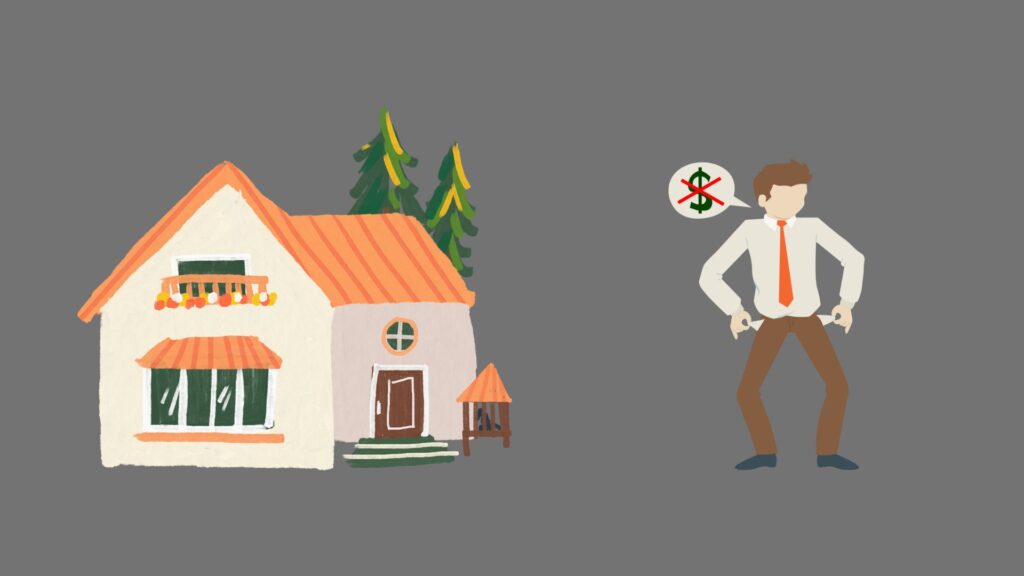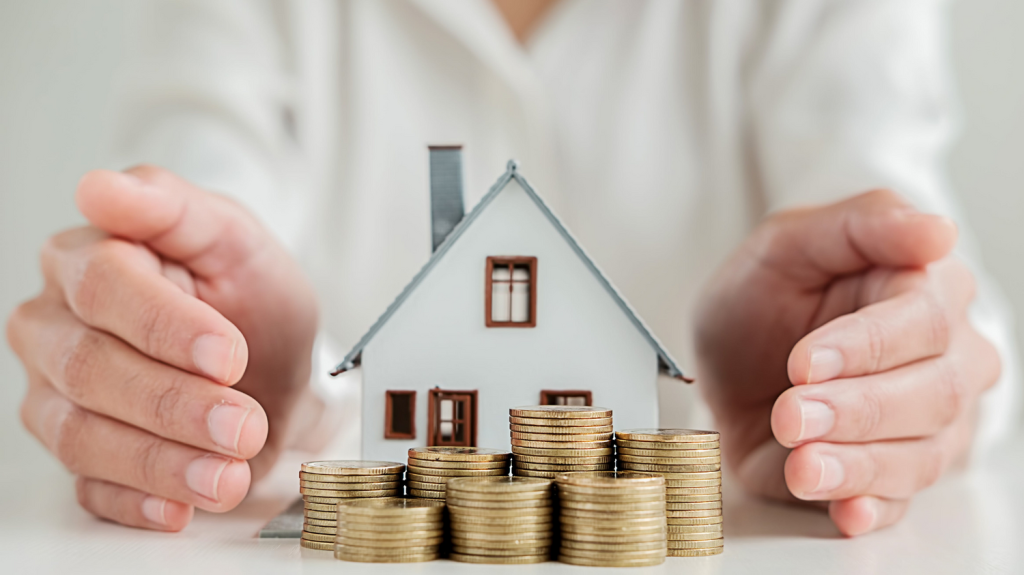We are going to discuss the definition of “House Rich and Cash Poor”
Whether you’re in California or your own state, there is one thing that no one can escape; the rising cost of living, especially the cost of real estate. In California especially, you might have a very large house and a considerable amount of equity in that house, but your standard of living may not be too high.
This may sound odd considering you have more money in your wallet, but that’s the reason you are house rich and cash poor. In this blog, learn what it really means to be rich and poor at the same time and how you can plan early to help prevent yourself from getting into this predicament.
First, how can someone be rich and poor at the same time? Well, it all comes down to how much money you have tied up in your home, compared with how much you have in your pocket.
By definition, house rich, cash poor is when a homeowner has untapped equity in their property but is unwilling or unable to withdraw it. At the same time, their lifestyle or personal debt grows at an unsustainable rate.
Nobody wants their home to be worth less than what they paid for it. In fact, a home can be the most expensive purchase a person will ever make. For a homeowner, the value of their home is often a great source of pride. According to recent data, home values have risen exponentially over the last 10 years. Regardless of when or why you purchased your home, it’s likely gone up in value. And the difference between the value of your home vs what you owe is called equity.
House Rich, Cash Poor works like this:
Let’s say you bought a house almost 20 years ago here in the Bay Area, your kids have moved out and started their own life, you’re basically an empty nester, and now you have a small mortgage with less than 10 years left on the loan and your home has appreciated a lot with over $1.5M in equity throughout the year which is a common and very realistic scenario for a lot of long-time homeowners in the Bay Area.
You’re on a fixed income, just enough to cover some of your basic expenses like a small mortgage, medical bills, property tax, and your basic needs, however, there’s not much room for leisure and you’re seeing the cost of living drastically rising. Your once-affordable lifestyle has evaporated and you can’t tap into your equity via HELOC or refinance. You probably want to change your lifestyle and you’re watching your savings slowly drip out of your account every month. Despite having over $1.5M in equity, life is hard and that is what we call house rich, cash poor.
Is it bad to be house rich and cash poor?
It’s definitely not a great place to be because the slightest hiccup in your life eventually becomes an issue – a large medical bill or when you take on a recurring medical cost every month or a costly home repair. That will lead to a downturn in your quality of life. You’ll end up just working constantly and burning through the years just to keep that asset but you don’t get to enjoy the benefits of it.

How can you avoid it?
First, you have to have a deeper understanding of your finances entirely; keep track of all the upcoming big-ticket expenses you foresee – roof repair or replacement, water leak, car repair, some type of medical bills, your kid’s college tuition, or your kid’s wedding; save enough cash to have enough financial cushion-emergency; explore your options, look into different loan products for a short-term solution, borrow money from your family or there are private lenders out there that can provide a small loan for you just to take care of your short-term problems.
However, you have to look at this in the long term, what are your long-term potential concerns and problems? Start to think about a strategy with the current situation that you’re in and the resources that you already have today available to you.
You are perhaps considering retiring in the near future. If so, access your equity now because once you retire and you don’t have that level of income, it might be more challenging to get some type of loan or access any of your equity once you retire.
You can consider taking on a roommate for additional income or building an Accessory Dwelling Unit so you have that future rental income and collect the rent as you age throughout the years in your home.
Downsizing is always a popular option if you thought about moving to a smaller, more economical home where you can also access part of your equity. The benefit of moving and downsizing to a smaller home is that there’s typically less maintenance like a condo, you don’t have to deal with the exterior landscaping, gardening, exterior painting, roofs, and any types of leaks. It gives you the benefit of having more time in your hands, it will be more economical to live in.
You may also move to a newer home that’s outside of the area in a lower-cost location where you get to live in a brand new or newer home compared to what you are currently living in now.
Lastly, there’s always an option of becoming a renter. The benefit of becoming a renter is that you don’t have to deal with any of the maintenance at all – exterior or interior maintenance. You just basically call your landlord to fix the issues. It’s hassle-free, low maintenance, no repairs, and you can always pick up and go if you don’t like the home that you’re living in and just move into a different area, different city or different state altogether.
All of these options will provide you with a better quality of life.
As the years go by in your home, you see the benefit of the property appreciating in value. As you move towards the last stage of your income-producing years, it is always good to talk with professionals in various fields to help with the transition.
Planning is always hard but you usually have more options when it’s done early. Keep in mind that it is challenging to access your equity through a loan if you’ve already retired with limited income.
Additionally
I hope you learned something from this blog. If you have any further questions, please don’t hesitate to contact me at gchua@intero.com or 650-255-1511.
if you would like to see what homes are available for sale in the area or want to schedule a showing, please feel free to contact us anytime!

